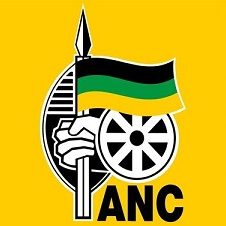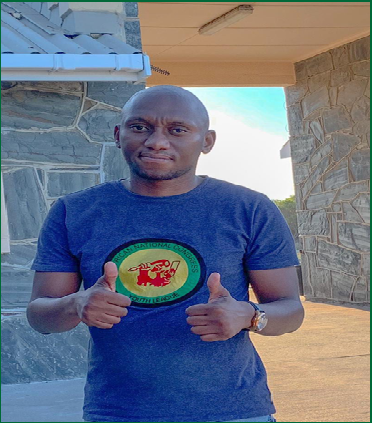It is said that as members of the ANC we have left the task of dissecting coalition governments to liberal analysts who are often hostile to our glorious move- ment. It is understood that those who often spark the debate within the organisation are often shunned at and their loyalty to the organisation is questioned. Those who suppress the debate claim that anyone within who speaks about the ANC governing through coali- tion government is questioning the hegemony of the ANC in society.
The phenomenon of ‘hung local authorities’ has become the subject of increasing interest in the country and it is disingenuous for ANC members to turn a blind eye to this phenomenon. In fact, it must be us as ANC members who are at the centre of discussions and sharpening contradictions as far as the topic of the coalition government is concerned.
To give a brief historical account of how shared power has featured in our political landscape, we can look back as far as the advent of democracy. Between 1994 and 1996, South Africa was governed under the terms of an interim Constitution. Clause 88 of the interim Constitution required that any political party holding twenty or more seats in the National Assembly could claim one or more cabinet portfolios and be part of the government. This arrangement was referred to as the Government of National Unity (GNU).
It was through this arrangement that the first democratic cabinet consisted of members of the opposition parties, notably, F. W. de Klerk from the National Party (NP) and M. G. Buthelezi from the Inkatha Freedom Party (IFP). The reasons given by the NP for its withdrawal from the GNU were mainly its lack of influencing government policy and the exclusion of joint-decision making in the affairs of government. This was the first indication since the dawn of democracy of how unstable coalition politics are in character.
It is important for us as members of the ANC to critically ask whether the ANC enters coalition government because of:
(1) the desire to remain in government?
(2) Maintaining important government policy positions?
(3) Retaining patronage position in government? (4) Retaining the support of party activists or
(5) Maintaining unity within the organisation?
The December 2000 elections were the founding elections for South Africa’s first democratic and fully representative municipal councils, with a total of 284 municipal councils (6 metropolitan councils, 231 local councils and 47 district councils) were established. A total of 237 metro and local councils were involved in the 2000 local government election. The ANC won a total of 170 municipal councils, DA 18, IFP 36 and one went to UDM. In 12 municipalities no overall majority was achieved. Therefore, the coalition government had to be formed. The municipality of Umjindi in Barberton had one seat in excess.
In 2006 local government elections, the ANC got 70,77% national overall vote. In 31 councils, no clear majorities were gained and coalition governments were formed. The ANC received 69,43% of the overall vote in 2011, while 25 municipalities were hung and coalition governments were formed. In the highly contentious 2016 elections, the ANC received 53,91% of overall support and in 27 municipalities no political party had the majority of votes. These 27 municipalities include the country’s capital city, Tshwane metropolitan municipality, the country’s economic hub, Johannesburg metropolitan municipality and the country’s industrial hub, Ekurhuleni metropolitan municipality.
It is upon the above statistics and strategic economic significance of the metros that the responsibility of placing the coalition government on the main political discourse within the structures of the movement gains impetus and as members of our beloved organisation, we cannot outsource this responsibility to charlatans masquerading as analysts. Perhaps, the starting point should be the renaming of the policy discussion document titled ‘Legislature and Governance’ into ‘Legislature, Governance and Coalitions’.
The inclusion of coalition governance as a topic for discussion should spark a debate on how best our movement can handle coalition politics. This should assist the organization to have a framework which guides lower structures on how to uniformly conduct themselves even with differ- ent dynamics. It will also assist in ensuring that organisational policies are not sacrificed in the quest for remaining or forming part of local governments.
We have seen how unstable coalition governments are especially after the 2016 local government elections, from Nelson Mandela Bay metro; to Johannesburg metro and Tshwane metro. Our people cannot continue to be subjected to such parochial power struggles for being in charge of the levers of the state. The poor are hard hit when the executive authority of a municipality is constantly changing. Service delivery is negatively impacted, the morale of public officials becomes very low noting that they are at the forefront of service delivery and rogue elements within the system take advantage.
The ANC as the parliament of the people remains the only hope for our people. It is therefore very important that we get our ducks in a row. The first step is to ensure that we have a strong and vibrant ANCYL. The modalities of ensuring such a preparatory school of the ANC have been ventilated by many and I do not wish to do so herein. However, I want to put emphasis on the significance of having a strong and vibrant ANCYL like that of President Peter Mokaba. A strong and vibrant ANCYL guarantees that the ANC will continue to exist for another 108 years. An ANCYL that is strong and vibrant will infuse new ideas into the ANC thus modernising and repositioning the ANC. A strong and vibrant ANCYL will have the capacity to mass-mo- mobilise the youth vote for ANC and reclaim the hegemony of the ANC in society thus escaping the bitter pill of governing through coalitions.

